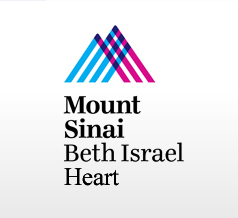Use of Muscle Spectroscopy to Evaluate Mitochondrial Dysfunction in HIV-Infected Patients
| Status: | Withdrawn |
|---|---|
| Conditions: | HIV / AIDS |
| Therapuetic Areas: | Immunology / Infectious Diseases |
| Healthy: | No |
| Age Range: | 18 - Any |
| Updated: | 1/20/2017 |
Pilot Study to Evaluate the Use of Phosphorus P31 Nuclear Magnetic Resonance Spectroscopy as a Non-Invasive Means to Evaluate Mitochondrial Dysfunction in HIV-Infected Subjects
The purpose of this study is to see if magnetic resonance spectroscopy (MRS) can be used to
detect damage to the mitochondria in HIV-infected patients taking nucleoside reverse
transcriptase inhibitor (NRTI) drugs.
HIV-infected patients taking NRTI drugs may have an increase in a chemical in their blood
called lactate. High lactate levels may damage the energy source of the cell (mitochondria).
Damage to mitochondria may cause lactic acidosis, liver failure, and other problems. It is
important to find effective ways to see if the mitochondria of HIV-infected patients have
been damaged. This study will see if MRS can be used to determine mitochondrial damage.
detect damage to the mitochondria in HIV-infected patients taking nucleoside reverse
transcriptase inhibitor (NRTI) drugs.
HIV-infected patients taking NRTI drugs may have an increase in a chemical in their blood
called lactate. High lactate levels may damage the energy source of the cell (mitochondria).
Damage to mitochondria may cause lactic acidosis, liver failure, and other problems. It is
important to find effective ways to see if the mitochondria of HIV-infected patients have
been damaged. This study will see if MRS can be used to determine mitochondrial damage.
NRTI-related mitochondrial toxicity has been implicated in some fatal cases of lactic
acidosis and liver failure. In addition, some investigators believe NRTI-related
mitochondrial toxicity to be the culprit in the development of peripheral neuropathy and
lipodystrophy in HIV-infected patients. There is a need for a sensitive, reproducible, and
noninvasive marker of mitochondrial dysfunction. To date, the only available noninvasive
marker is lactate, but lactate testing is insensitive and the significance and
reproducibility of lactate levels in the HIV-infected population are questionable.
Spectroscopy promises to be a very useful alternative for the evaluation of the in vivo
effect of NRTIs on mitochondrial function.
Prior to the screening visit, HIV-infected participants must fast for at least 12 hours and
refrain from exercise for at least 24 hours. At the screening visit, all participants have
blood drawn for lactate measurements and tests for hepatitis B and C. HIV-uninfected
participants have an HIV test. Women who are able to become pregnant have a pregnancy test.
Prior to the entry visit, HIV-infected participants must fast for 12 hours and refrain from
exercise for 3 days. At the entry visit, all participants have blood drawn for lactate
measurements and women have repeat pregnancy tests. Participants have an MRS scan, which
takes approximately 60-80 minutes.
acidosis and liver failure. In addition, some investigators believe NRTI-related
mitochondrial toxicity to be the culprit in the development of peripheral neuropathy and
lipodystrophy in HIV-infected patients. There is a need for a sensitive, reproducible, and
noninvasive marker of mitochondrial dysfunction. To date, the only available noninvasive
marker is lactate, but lactate testing is insensitive and the significance and
reproducibility of lactate levels in the HIV-infected population are questionable.
Spectroscopy promises to be a very useful alternative for the evaluation of the in vivo
effect of NRTIs on mitochondrial function.
Prior to the screening visit, HIV-infected participants must fast for at least 12 hours and
refrain from exercise for at least 24 hours. At the screening visit, all participants have
blood drawn for lactate measurements and tests for hepatitis B and C. HIV-uninfected
participants have an HIV test. Women who are able to become pregnant have a pregnancy test.
Prior to the entry visit, HIV-infected participants must fast for 12 hours and refrain from
exercise for 3 days. At the entry visit, all participants have blood drawn for lactate
measurements and women have repeat pregnancy tests. Participants have an MRS scan, which
takes approximately 60-80 minutes.
Inclusion Criteria
Participants in Groups 1 and 2 may be eligible for this study if they:
- Are at least 18 years old.
Participants in Group 1 (HIV-uninfected) may be eligible for this study if they:
- Are HIV-uninfected within 30 days prior to study entry.
Participants in Group 2 (HIV-infected) may be eligible for this study if they:
- Are HIV infected.
- Have been taking an NRTI-containing anti-HIV drug regimen for 8 weeks or more prior
to study entry.
- Have a nonexercise venous lactate level greater than 2 times the upper limit of
normal (ULN) on 2 repeated measurements.
Exclusion Criteria
Participants in Groups 1 and 2 may not be eligible for this study if they:
- Have severe claustrophobia.
- Have severe symptoms that, in the opinion of the investigator, would interfere with
the ability of participants to perform the exercise required for spectroscopy
testing.
- Have hepatitis C or B, within 90 days prior to study entry.
- Have taken certain drugs within 30 days prior to study entry.
- Have a medical condition associated with chronic liver disease other than hepatitis C
and B.
- Have consumed excessive amounts of alcohol in the past 12 months.
- Are pregnant or breast-feeding.
- Have a foreign object or metal in their body that would impair MRS testing.
- Have or have had peripheral vascular disease.
- Weigh 250 lbs or more.
- Have a family history of mitochondrial disease or have skeletal muscle disease, heart
muscle disease, or nervous system conditions without a clearly defined cause that is
not related to mitochondria.
Participants in Group 1 (HIV-uninfected) may not be eligible for this study if they:
- Have any active medical condition.
- Use any prescription drugs, except for vitamins or oral contraceptives.
We found this trial at
7
sites
Beth Israel Med Ctr The physicians and staff of Mount Sinai Beth Israel's Heart Institute...
Click here to add this to my saved trials
University of Alabama at Birmingham The University of Alabama at Birmingham (UAB) traces its roots...
Click here to add this to my saved trials
1211 Medical Center Dr
Nashville, Tennessee 37232
Nashville, Tennessee 37232
(615) 322-5000

Vanderbilt Univ Med Ctr Vanderbilt University Medical Center (VUMC) is a comprehensive healthcare facility dedicated...
Click here to add this to my saved trials
Duke Univ Med Ctr As a world-class academic and health care system, Duke Medicine strives...
Click here to add this to my saved trials
The University of California, San Diego UC San Diego is an academic powerhouse and economic...
Click here to add this to my saved trials
Univ of Nebraska Med Ctr A vital enterprise in the nation’s heartland, the University of...
Click here to add this to my saved trials
Click here to add this to my saved trials




